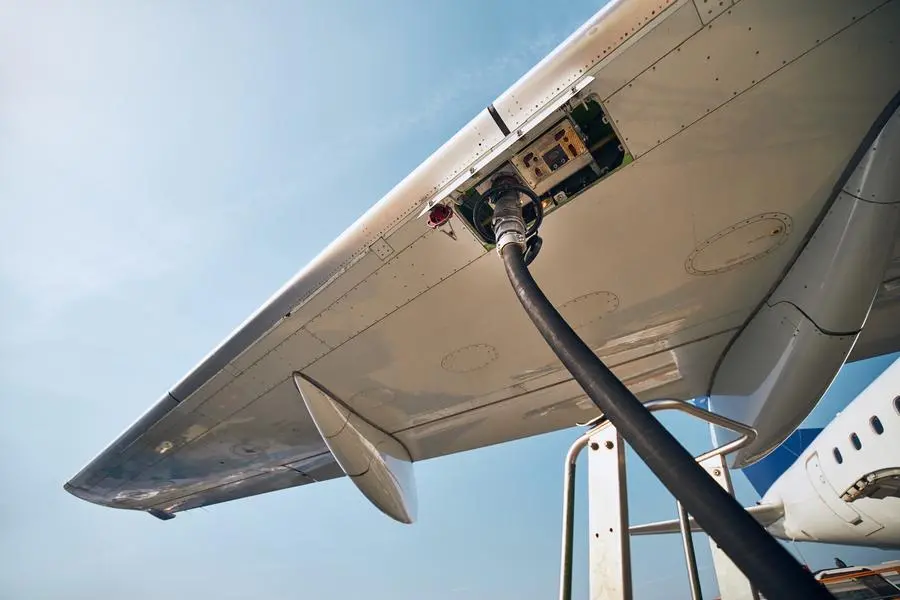PHOTO
MUSCAT: Norwegian sustainable aviation fuels (SAF) producer Nordic Electrofuel has revealed that it has ambitions to establish an e-SAF plant in the Sultanate of Oman, utilising renewable hydrogen as feedstock from the country’s emerging green hydrogen industry.
The announcement was made by Nordic Electrofuel's Chief Executive Gunnar Holen in an interview with Argus Media, a London-based independent media organisation and energy industry think-tank. The article detailed Electrofuel’s plans to set up e-SAF projects in the Middle East, with tentative deals already in the works for investments in Oman and Saudi Arabia.
The revelation represents a further boost for Oman’s efforts to catalyse the growth of an e-SAF production hub that will cater to the low-carbon jet fuel requirements of the international aviation industry as airlines seek to decarbonise their operations.
e-SAF is produced using renewable electricity to extract hydrogen from water (via electrolysis) and combining it with CO₂ captured from the atmosphere or industrial processes. The resulting chemical synthesis creates sustainable aviation fuel that is similar to conventional jet fuel but with a significantly lower carbon footprint.
Privately-held Nordic Electrofuel says it plans to invest in a number of e-SAF production facilities in Europe and elsewhere with an aggregate capacity of around 1 billion litres of low-carbon jet fuel per annum by 2033. Its cost-efficient Power-to Liquid (PtL) technology utlises green hydrogen and CO2 to produce Sustainable Aviation Fuel (SAF). A pilot plant currently under development in Norway’s Porgrunn district is due to come into operation by 2027 with a capacity of 10 million litres of synthetic fuels per annum.
In the Middle East, Nordic Electrofuel says it has secured approvals for the development of a 350 million litres/year capacity e-SAF plant at Jubail in Saudi Arabia. The project, if suitably fast-tracked, can be targeted for launch by 2029, Holen noted in the interview.
As for its proposed Oman project, plant capacity is yet to be decided, he said, noting however that feedstock for the venture could come from the mega-scale green hydrogen developments expected to materialise in the coming years.
Nordic Electrofuel’s proposed investment in Oman, the Chief Executive pointed out, stands to benefit from cost-competitive renewable electricity given the abundance of high-quality solar and wind resources in the country.
In Oman, the Civil Aviation Authority (CAA) is spearheading the effort to attract local and international investments in a national e-SAF production hub. Since its hosting of a landmark forum on Sustainable & Low Carbon Aviation Fuel in October 2023, a number of ambitious initiatives have been announced to support the production of e-SAF in the country.
Most notable is the initiative by the OSCAR (Oman Sustainable Cars and Aviation Refuelling) consortium to study the potential for e-gasoline and e-SAF production. The consortium comprises OQ Alternative Energy (OQAE), Dutco, Sumitomo Corporation Middle East FZE, Automobili Lamborghini SpA and Airbus.
Just earlier, SkyNRG, a sustainable aviation fuel solutions leader based in the Netherlands, signed an MoU with the CAA to explore the development of an e-SAF production facility in Oman.
Additionally, local Omani startup Wakud unveiled plans for the establishment of two major bio-refineries for the production of e-SAF with an investment totalling around $630 million.
2022 © All right reserved for Oman Establishment for Press, Publication and Advertising (OEPPA) Provided by SyndiGate Media Inc. (Syndigate.info).




















